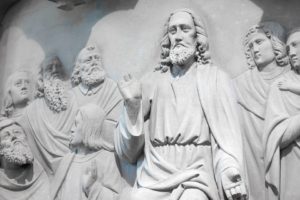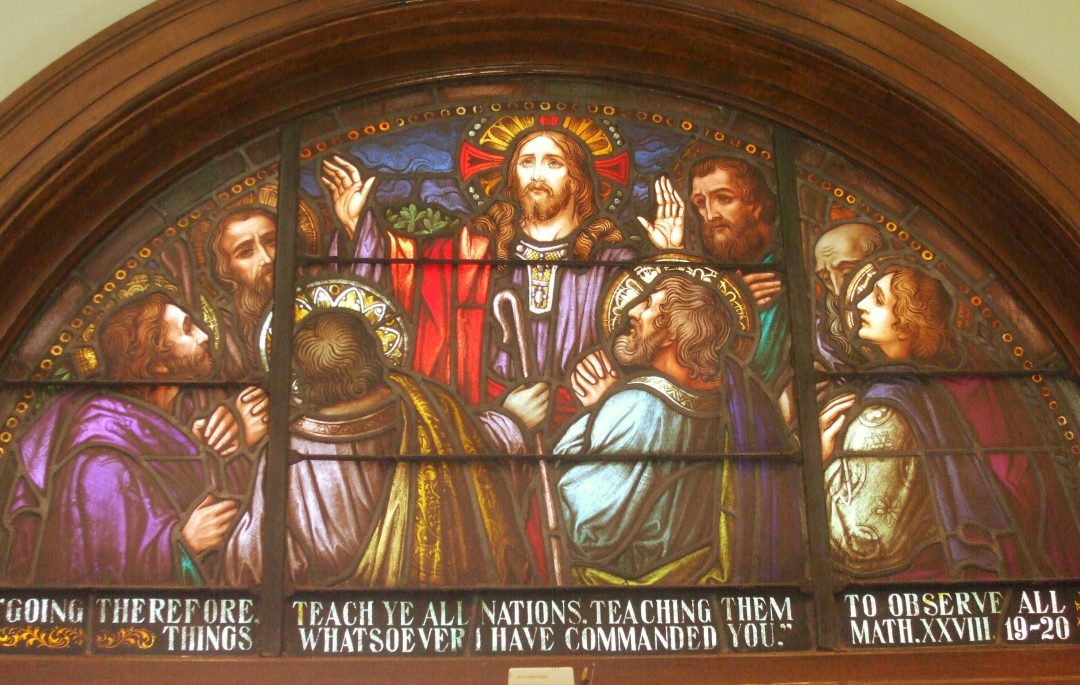The words that form the basis of the Great Commission are seen in Matthew 28:19-20, “Therefore go and make disciples of all nations, baptizing them in the name of the Father and of the Son and of the Holy Spirit, and teaching them to obey everything I have commanded you. And surely I am with you always, to the very end of the age.”
The Great Commission is the responsibility that the Lord Jesus Christ tasked his disciples then, and those to come, with to advance the work he had lain the foundation for, the three and half years he had been on earth. The spread of Christianity to the four corners of the world was and remains a function of the great commission.
Why the Great Commission?
Seeing his time on earth was over, Jesus coined a scheme of ensuring what he started reached a fruitful and gainful end, just like any leader would do who is keen on achieving the Big Picture though he/she has to pass on the baton. Jesus had fulfilled his part of the great commission-redeem mankind- it was his time to pass on the baton to his successors, the disciples. In short, the Great commission serves to accomplish Christ’s mission of redeeming the human race from its fallen nature through preaching and teaching of the Gospel and sharing the love and values of Christ as his Ambassadors.
Who does it involve?
Christ commissioned his disciples, hence every believer and everyone that identifies himself or herself as a follower of Christ bears the responsibility of carrying out the great commission.
What does it involve?
It entails:
 Recruitment. Christ recruited twelve guys to his camp while here on earth who would be his disciples thereafter. In his commissioning, He said go and make disciples-that is got more people to your camp.
Recruitment. Christ recruited twelve guys to his camp while here on earth who would be his disciples thereafter. In his commissioning, He said go and make disciples-that is got more people to your camp.- Teaching. Sharing or making known the Good News to all people so that they come to the knowledge of Christ is the first step in reaching out to people. It helps them understand the call before they can sign up for it, as it is well put in Romans 10:14, “How, then, can they call on the one they have not believed in? And how can they believe in the one of whom they have not heard? And how can they hear without someone preaching to them?”
- Training. The making of disciples involves more than just teaching. Jesus took his disciples with him, he stayed with then and was with them at all times. This was to train them so that they would ultimately do like he did. He ensured they saw what he did, the kind of life he lived so that they would take after him.
- EQUIP. Before He commissioned the disciples, Jesus told the disciples to wait in Jerusalem that they may receive the Helper-Holy Ghost. When they received the Holy Ghost they were empowered- received what it takes- to go out and execute the Great Commission. Equipping involves baptism and all other forms of support that is needful for the success of the mission.
- Send them out. Having received the Holy Spirit, the disciples went out to all the towns spreading the Good News. After training and equipping the disciples, the final step is to send them out to the world to start working on the Great Commission.
How to go about it?
Every effort is made to fulfill the requirements in the above five stages. Recruitment and teaching can be accomplished by inviting people to church services, open-air crusades, and door-to-door evangelism and even through media. All possible means can be used to disseminate the good news, then follow up and training sessions or seminars can be organized to train people to become disciples. After which they are equipped with the necessary skills and material resources and then sent to all the parts of the world.
The Great Commission is indeed a great task, which narrows down to this illustration: if you have tasted something really good and you would really want others to know about it, what will you do? You would tell them about it and share it with them. So is the call for Great Commission- selflessness and commitment to share the sweetness of salvation and the Good News which we have tasted.






